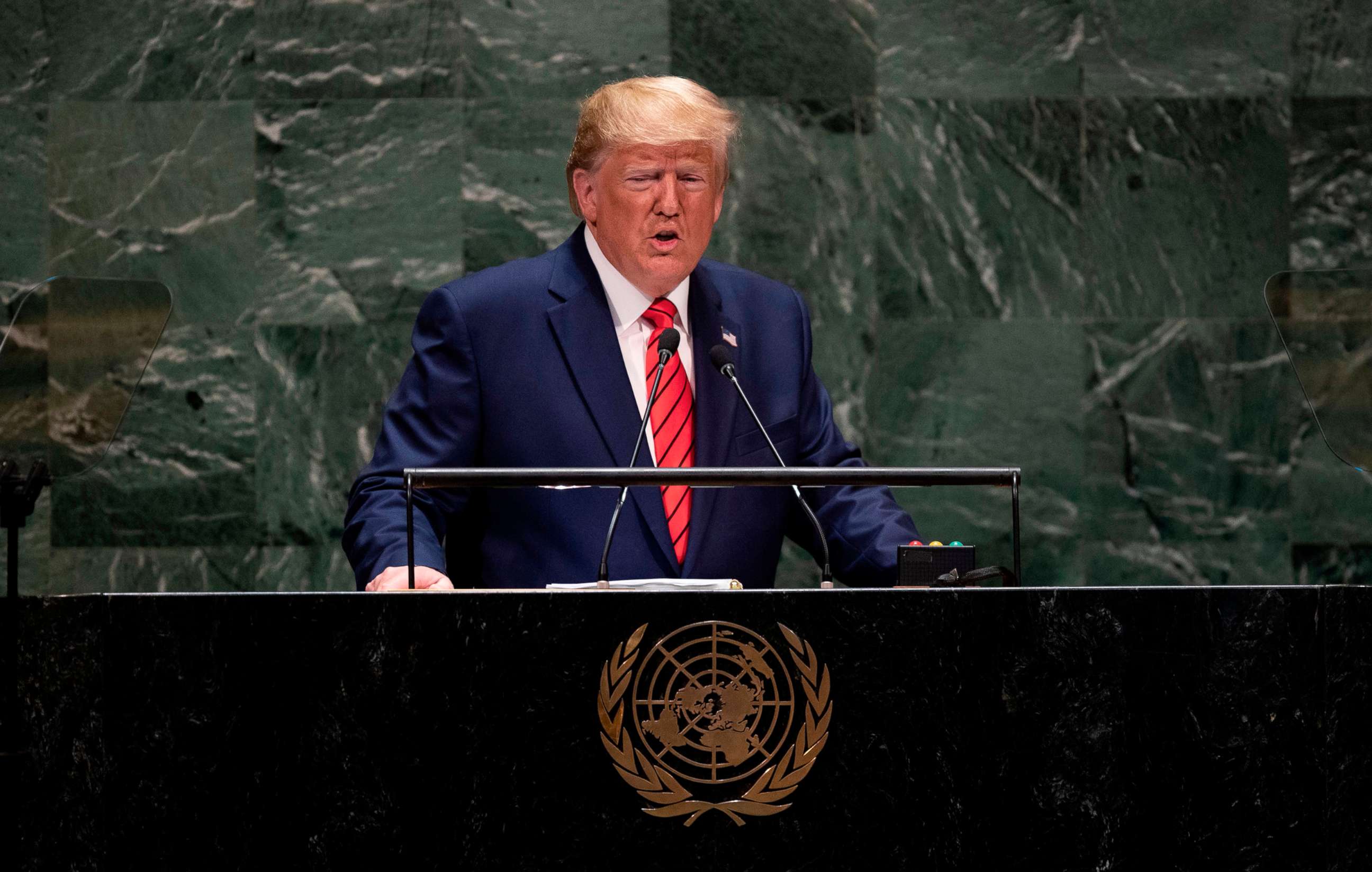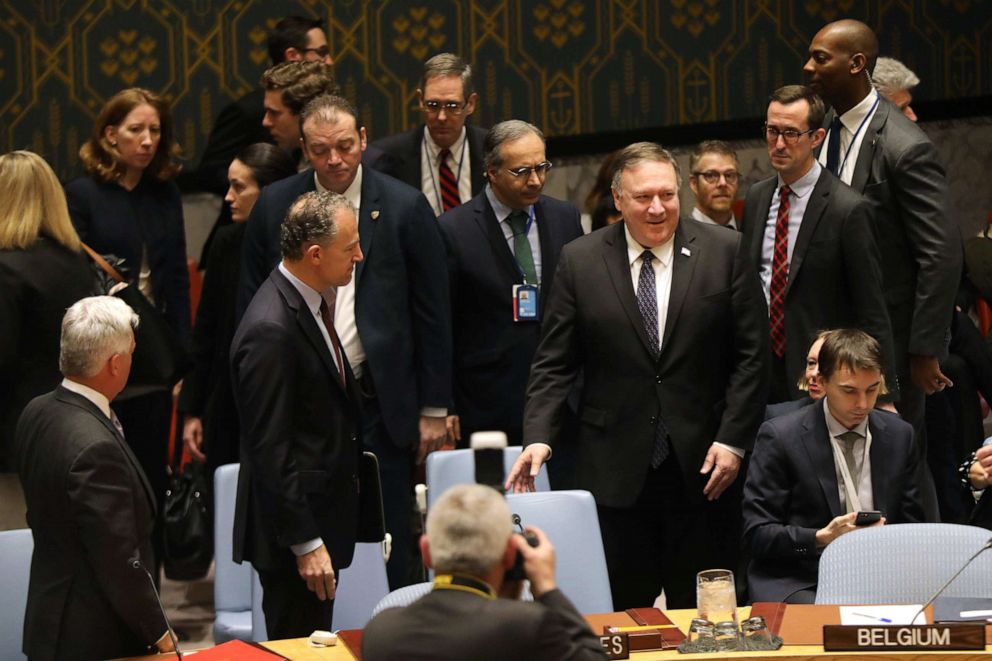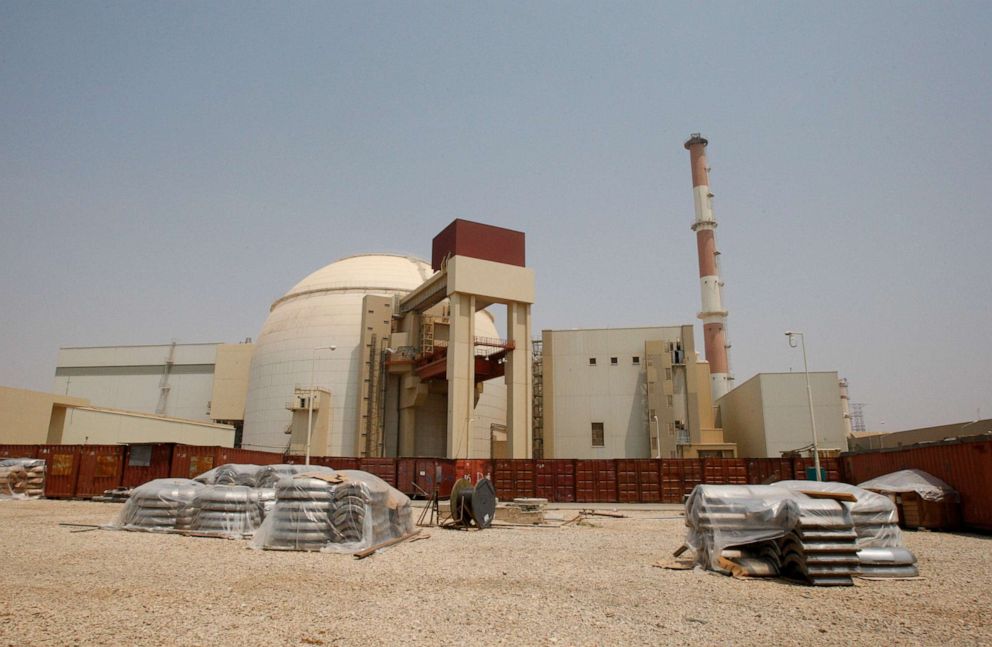'Snapback'?: Inside Trump's controversial move to bring back UN sanctions on Iran
The U.S. is set to throw a grenade into the United Nations Security Council Thursday in a move anticipated for months, but one that will have profound effects on the United States' standing, tensions over Iran's nuclear program, and even the U.N. itself.
President Donald Trump announced Wednesday that he had ordered Secretary of State Mike Pompeo "to notify the U.N. Security Council that the United States intends to restore virtually all of the previously suspended United Nations sanctions on Iran. It's a 'snapback.' It's not uncommon."

But it is uncommon; it's never happened before in years of international concern about Iran's nuclear program. It would involved the U.S. using a mechanism built by the Iran nuclear deal, which it exited, to return U.N. sanctions on Tehran, but which other countries say that Washington can't do and that they may ignore.
What is 'snapback'?
The Iran nuclear deal allows for any party to trigger a process that snaps U.N. sanctions on Iran back into place if Iran is not complying with the deal. Those sanctions include an embargo on Iran selling or buying specific weapons, a ban on Iran's activities tied to nuclear enrichment and reprocessing and any outside support for them, sanctions on certain Iranian officials and entities, and more.
That party has to file a formal complaint, which Pompeo will do Thursday. The U.N. Security Council then has 30 days to pass a resolution to keep sanctions waived, or they "snap back."

With its veto power, the U.S. would sink any such resolution, making "snapback" all but inevitable once the complaint is filed.
Since May 2019, Iran has been violating its commitments under the deal -- amassing more enriched uranium at higher levels and spinning more centrifuges -- but it did so in response to the U.S. withdrawing in May 2018 and reinstating U.S. sanctions to an even greater extent than ever before.
Why now?
The Trump administration has made clear since this spring they will use "snapback" to prevent that U.N. arms embargo on Iran from expiring on Oct. 18.
Lifting the embargo, in place since 2007, was a part of the nuclear deal, but Pompeo and others have warned that Iran cannot be allowed to purchase weapons and that the U.S. will do everything in its power to stop it.
They're initiating the process now because of the 30-day clock -- and after a U.S. resolution to extend the arms embargo indefinitely failed last Friday, securing only one other vote.
That resolution was vetoed by Russia and China, but it didn't receive the support of U.S. allies like Germany, France, and the U.K. either in what's been called "an embarrassing defeat."
Those allies share U.S. concerns about Iran's military, but they are trying to salvage the nuclear deal even after U.S. withdrawal and Iranian violations. That's left them unwilling to take steps against it, like extending a U.N. embargo that they agreed under the deal to lift.

Can the US do this?
Pompeo and other officials have argued that the U.S. may have exited the nuclear deal in May 2018, but it remains a party to the U.N. Security Council resolution that enshrined the deal. As a member of the Security Council, they argue, they still have this right.
All the other major powers disagree. Russia and China have argued that because the U.S. left the deal, they have no standing -- a position shared by the European Union.
Should the US do this?
While the U.S. may have legal grounds to snap back, whether they should do so is a different question. Pointing to the resolution that failed last Friday, Pompeo and other U.S. officials have said the U.S. tried to find a diplomatic solution and avoid this mess -- although some critics have questioned how hard they tried or argued that U.S. withdrawal from the Iran deal divided the Western alliance and made any such effort too difficult.
Many Republicans in Congress, particularly Tom Cotton, Marco Rubio, and Ted Cruz, have been calling for "snapback" since last year. But John Bolton -- Trump's former National Security Advisor and a notorious Iran hawk -- has argued against it, writing in a Wall Street Journal op-ed Sunday that the move would cause long-term, permanent damage to U.S. veto power.
"It's too cute by half to say we're in the nuclear deal for purposes we want but not for those we don't. That alone is sufficient reason not to trigger the snapback process," Bolton added.
What happens afterwards?
It's unclear. During a press conference Wednesday, Pompeo said the U.S. expects the snapped back sanctions to be fully enforced: "These will be fully valid, enforceable U.N. Security Council resolutions. We have every expectation that they'll be enforced just like every other U.N. Security Council resolution that's in place."
But it's clear that Russia and China won't see it that way and will essentially ignore the sanctions, including by moving ahead with arms sales to Iran. The key question is whether those European allies and the rest of the world will follow suit -- and whether the U.S. will sanction them if they do.




